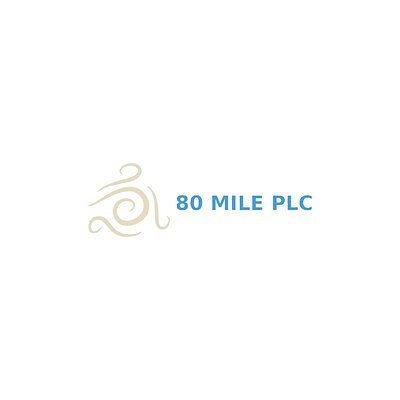
80 Mile PLC Pivots to Biofuels, Securing Key Agreements for European Supply
A UK firm is making waves in the European energy landscape, shifting from mineral exploration to sustainable fuel production and locking down vital feedstock and offtake deals to power its Italian facility.
80 Mile PLC Pivots to Biofuels, Securing Key Agreements for European Supply
LONDON, UK – October 28, 2025
From Greenland Minerals to Italian Biofuels: A Strategic Shift
80 Mile PLC, formerly focused on mineral exploration in Greenland, is making a significant strategic pivot towards sustainable energy, highlighted by recently secured commercial agreements for its Ferrandina biofuels facility in Italy. The company has rapidly expanded its footprint in the renewable energy sector, acquiring 100% ownership of Hydrogen Valley and forging key partnerships to secure feedstock supply, tolling arrangements, and offtake agreements. This transition comes at a crucial time for Europe, as nations seek to bolster energy independence and meet increasingly stringent environmental regulations.
“The move represents a fundamental reshaping of the company’s portfolio,” explains one industry analyst. “They’re recognizing the shifting dynamics of the energy market and positioning themselves to capitalize on the growing demand for sustainable fuels.” While the company’s roots lie in resource extraction, the Ferrandina facility marks a decisive move toward a more diversified and environmentally conscious future.
Securing the Supply Chain: Agreements Drive Growth
The company’s recent agreements are designed to create a stable and predictable revenue stream for the Ferrandina plant. The cornerstone of this strategy is the acquisition of Hydrogen Valley, owner of Greenswitch S.r.l., which operates the biofuels facility. This acquisition provided 80 Mile with immediate access to an operational asset with a permitted capacity of 150,000 tonnes per annum. More importantly, the company has secured vital MOUs and agreements. A significant milestone is the tolling agreement with Ludoil Energia, covering 50% of the plant’s capacity. This agreement effectively de-risks the operation by transferring feedstock purchasing responsibilities to Ludoil, while ensuring a guaranteed processing fee for Hydrogen Valley.
“The tolling arrangement is particularly smart,” notes a source close to the deal. “It allows them to focus on optimizing the plant’s operations and maximizing throughput without being exposed to the volatility of feedstock prices.” Beyond Ludoil, agreements with a Fortune 500 energy company, JEnergy, NACATA Commodities, and Tecnoparco Valbasento will secure a diversified feedstock supply and downstream offtake channels for the biodiesel and Sustainable Aviation Fuel (SAF) produced at the facility. The total committed offtake volume significantly exceeds current capacity, demonstrating strong demand for the plant’s output.
European Energy Security and the Biofuel Landscape
The timing of 80 Mile’s foray into biofuels is particularly noteworthy. Europe is facing increasing pressure to reduce its reliance on fossil fuels and diversify its energy sources. The Russian invasion of Ukraine exposed vulnerabilities in the continent’s energy supply chains, accelerating the transition towards renewable alternatives. Biofuels, particularly SAF, are emerging as a critical component of this transition.
The European Union’s “ReFuelEU Aviation Initiative” mandates a gradual increase in SAF blending, reaching 70% by 2050. This policy is driving significant investment in SAF production capacity, but supply remains limited. The Ferrandina facility, with its potential to produce both biodiesel and SAF, is well-positioned to benefit from this growing demand. Industry estimates suggest that the European SAF market could reach tens of billions of euros in the coming years, creating a significant opportunity for companies like 80 Mile. However, the challenge lies in scaling up production while ensuring sustainability.
The EU’s Renewable Energy Directive (RED) places strict criteria on biofuel feedstocks, prioritizing waste-based and advanced biofuels over crop-based alternatives. The Ferrandina facility is expected to utilize a variety of feedstocks, including Used Cooking Oil and other waste streams, to comply with these regulations. This focus on sustainability is essential to maintaining access to key markets and securing long-term growth.
Financial Implications and Future Outlook
The financial implications of these agreements are significant. Hydrogen Valley reported a profit after tax of £1,899,205 for the year ended June 30, 2025, providing a solid foundation for future growth. The tolling agreement with Ludoil is projected to generate approximately €8 million in annual net profit from 50% of the plant’s capacity, with the potential to double this figure when full production is achieved. The recent equity raise and the acquisition of Hydrogen Valley have strengthened the company’s balance sheet and provided the capital needed to fund future expansion.
80 Mile is currently exploring opportunities to retrofit the Ferrandina plant with advanced technologies to increase conversion efficiency and expand its production capacity. The company is also evaluating the potential to develop a solar PV park to provide renewable energy to the facility, further reducing its carbon footprint. The integration of these initiatives demonstrates a long-term commitment to sustainable energy production and positions 80 Mile as a key player in the European biofuels market. “This is more than just a financial play,” explains one analyst. “It’s a strategic investment in a future powered by renewable energy.”
